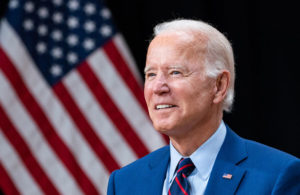
President Joe Biden [Image courtesy of the White House]
The Biden administration today released findings from 100-day supply chain assessments, determining the need to boost pharmaceutical manufacturing.
According to a fact sheet, the administration plans to take immediate action to “address vulnerabilities and strengthen resilience” with its effort to take on near-term supply chain disruptions for four products: semiconductor manufacturing and advanced packaging; large capacity batteries, like those for electric vehicles; critical minerals and materials; and pharmaceuticals and active pharmaceutical ingredients (APIs).
President Biden and his team said they are crafting strategies for six industrial bases to be completed within a year as part of the President’s American Jobs Plan.
The administration intends to invest in the development of new pharmaceutical manufacturing processes, with an emphasis on upping the funding for advanced manufacturing technologies to increase the production of key pharmaceuticals and ingredients. The plan encompasses both traditional manufacturing techniques and on-demand manufacturing capabilities for supportive care fluids, APIs and finished dosage form drugs.
Additionally, Biden and his team are seeking to improve transparency throughout the pharmaceutical supply chain, calling on the U.S. Dept. of Health & Human Services (HHS) to develop and make recommendations to Congress on new authorities that would allow the department to track production by facility, track API sourcing and require that API and finished dosage form sources be identified on labeling for all pharmaceuticals sold in the U.S.
“The COVID-19 pandemic highlighted the critical importance of a resilient U.S. healthcare manufacturing sector. Private sector innovation and robust federal investment allowed the U.S. to rapidly develop and strengthen COVID-19 supply chains,” the fact sheet reads. “But the United States remains critically dependent on imports for a range of key pharmaceutical products and APIs—the primary ingredients of generic drugs—which represent 90 percent of all prescription medications filled. About 87 percent of API facilities for generic drugs are located overseas which has left U.S. supply chains of essential medicines vulnerable.
“China and India are estimated to control substantial parts of the supply chain where there have been issues with shortages due to a range of disruptions that have impacted supply as well as quality and safety. The drive toward lower costs as well as unfair trade practices have led to a hollowing out of domestic production. A new approach is needed to ensure more resilient supply chains that includes improving transparency, building emergency capacity, and investing in domestic production.”